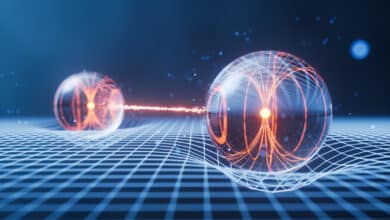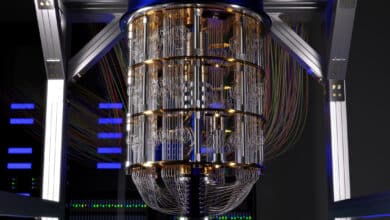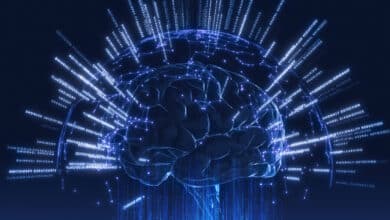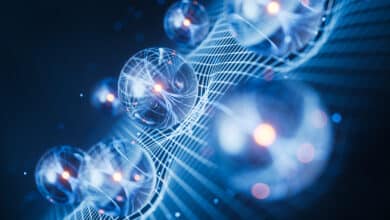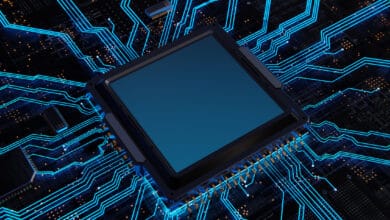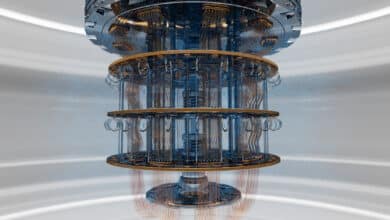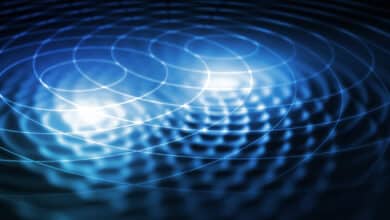Quantum Computing
PostQuantum.com – Industry news and blog on Quantum Computing, Quantum Security, PQC, Post-Quantum, Quantum Tech
-
The Toffoli Gate: The Unsung Workhorse in Quantum Codebreaking
Understanding the Toffoli gate’s role isn’t just an academic exercise – it has real implications for when and how quantum computers might break our cryptography. Each Toffoli gate isn’t a single physical operation on today’s hardware; it has to be decomposed into the basic operations a quantum machine can do…
Read More » -
Wave Function Collapse: When Quantum Possibilities Become Reality
Wave function collapse is the idea that a quantum system, described by a wave function embodying several possible states at once, suddenly reduces to a single state when observed. In simple terms, before you measure it, a quantum object can be in a superposition of many possibilities; when you measure…
Read More » -
Cat Qubits 101
Bosonic “cat qubits” are quantum bits encoded in the states of bosonic oscillators (e.g. modes of a microwave cavity) that resemble Schrödinger’s famous alive/dead cat superposition. Instead of relying on a single two-level quantum element, a cat qubit stores information in two coherent states of a harmonic oscillator and their…
Read More » -
Quantum Entanglement: The “Spooky” Glue Uniting Qubits and Beyond
From enabling quantum supercomputers to securing communications and teleporting quantum states, entanglement is the thread weaving through all of quantum technology. What once struck Einstein as a paradox is today routinely observed and harnessed in labs – the “spooky action” has become a practical tool. We have learned that entanglement…
Read More » -
Transmon Qubits 101
Transmon qubits are a type of superconducting qubit designed to mitigate charge noise by shunting a Josephson junction with a large capacitor. In other words, a transmon is a superconducting charge qubit that has reduced sensitivity to charge fluctuations. The device consists of a Josephson junction (a nonlinear superconducting element)…
Read More » -
Glossary of Quantum Computing Terms
Glossary of Quantum Computing, Quantum Networks, Quantum Mechanics, and Quantum Physics Terms for Cybersecurity Professionals.
Read More » -
Lattice Surgery
Quantum computing promises to solve complex problems far beyond the reach of classical machines, but today's quantum hardware is plagued by short-lived qubits and error rates that make long computations infeasible. Quantum error correction (QEC) is essential to stabilize qubits and enable fault-tolerant quantum computing. One of the leading QEC…
Read More » -
Adiabatic Quantum Computing (AQC) and Impact on Cyber
Adiabatic Quantum Computing (AQC), and its variant Quantum Annealing, are another model for quantum computation. It's a specialized subset of quantum computing focused on solving optimization problems by finding the minimum (or maximum) of a given function over a set of possible solutions. For problems that can be presented as…
Read More » -
Routing Quantum Information: SWAP, iSWAP, and Moving Qubit States
Quantum computers face a unique challenge in moving quantum information between qubits. Unlike classical bits that can be shuttled freely along wires, qubits cannot be arbitrarily copied or moved due to the no-cloning theorem. To route a qubit’s state from one location to another, one must use quantum operations that…
Read More » -
Surface Code Quantum Error Correction
Quantum error correction (QEC) is indispensable for building large-scale fault-tolerant quantum computers. Even today’s best qubits suffer error rates that would quickly corrupt any long calculation if left uncorrected. The principle of QEC is to encode a single logical qubit into multiple physical qubits such that errors can be detected…
Read More » -
Quantum Supremacy vs. Quantum Advantage
In the ever-accelerating world of quantum computing, two terms have emerged as the darlings of headlines and conference keynotes: quantum supremacy and quantum advantage. If you've followed the news, you might think they're interchangeable buzzwords celebrating the dawn of a new computing era. But dig a little deeper, and you'll…
Read More » -
Early History of Quantum Computing
Since the early 2000s, the field of quantum computing has seen significant advancements, both in technological development and in commercialization efforts. The experimental demonstration of Shor's algorithm in 2001 proved to be one of the key catalyzing events, spurring increased interest and investment from both the public and private sectors.
Read More » -
The Controlled-NOT (CNOT) Gate in Quantum Computing
The CNOT gate is to quantum circuits what the XOR gate is to classical circuits: a basic building block for complex operations. By learning how the CNOT gate works and why it matters, cybersecurity experts can better appreciate how quantum computers process information, how they might break cryptography, and how…
Read More » -
Random Circuit Sampling (RCS) Benchmark
At its core, Random Circuit Sampling (RCS) is a way to test how well a quantum computer can generate the output of a complex quantum circuit. Compare the results to what an ideal quantum computer should produce. If the quantum computer’s output closely matches the theoretical expectations, it demonstrates that…
Read More » -
Schrödinger’s Wave Equation
Schrödinger’s equation is essentially the master instruction set for quantum systems – the quantum-world analogue of Newton’s famous F=ma in classical physics. In short, Schrödinger’s equation is to quantum mechanics what Newton’s second law is to classical mechanics: a fundamental law of motion describing how a physical system will change…
Read More »



